Related Research Articles
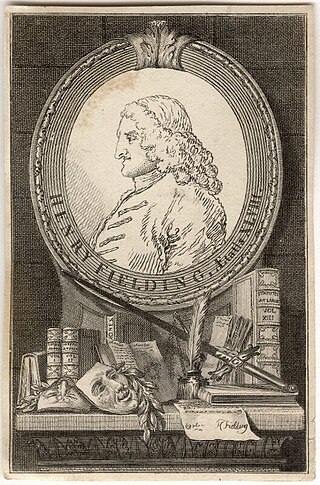
Henry Fielding was an English writer and magistrate known for the use of humour and satire in his works. His 1749 comic novel The History of Tom Jones, a Foundling was a seminal work in the genre. Along with Samuel Richardson, Fielding is seen as the founder of the traditional English novel. He also played an important role in the history of law enforcement in the United Kingdom, using his authority as a magistrate to found the Bow Street Runners, London's first professional police force.

Charles Bannister (1738–1804) was an English actor, comedian and singer.
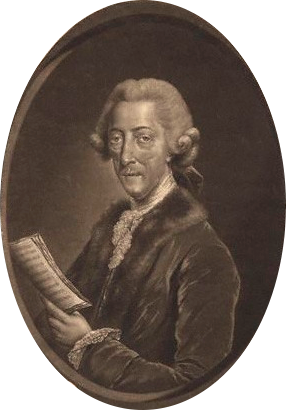
Thomas Augustine Arne was an English composer. He is best known for his patriotic song "Rule, Britannia!" and the song "A-Hunting We Will Go", the latter composed for a 1777 production of The Beggar's Opera, which has since become popular as a folk song and a nursery rhyme. Arne was a leading British theatre composer of the 18th century, working at the West End's Drury Lane and Covent Garden. He wrote many operatic entertainments for the London theatres and pleasure gardens, as well as concertos, sinfonias, and sonatas.

Michael Arne was an English composer, harpsichordist, organist, singer, and actor. He was the son of the composer Thomas Arne and the soprano Cecilia Young, a member of the famous Young family of musicians of the seventeenth and eighteenth centuries. Like his father, Arne worked primarily as a composer of stage music and vocal art song, contributing little to other genres of music. He wrote several songs for London's pleasure gardens, the most famous of which is Lass with the Delicate Air (1762). A moderately prolific composer, Arne wrote nine operas and collaborated on at least 15 others. His most successful opera, Cymon (1767), enjoyed several revivals during his lifetime and into the early nineteenth century.

Charles Dibdin was an English composer, musician, dramatist, novelist, singer and actor. With over 600 songs to his name, for many of which he wrote both the lyrics and the music and performed them himself, he was in his time the most prolific English singer-songwriter. He is best known as the composer of "Tom Bowling", one of his many sea songs, which often features at the Last Night of the Proms. He also wrote about 30 dramatic pieces, including the operas The Waterman (1774) and The Quaker (1775), and several novels, memoirs and histories. His works were admired by Haydn and Beethoven.
Isaac Bickerstaffe or Bickerstaff was an Irish playwright and Librettist.
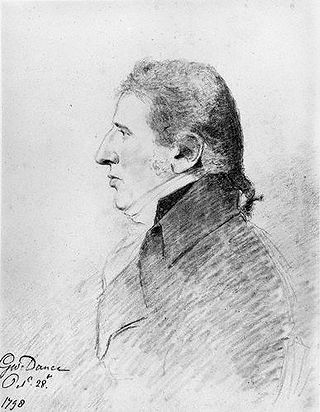
Charles Benjamin Incledon was a Cornish tenor singer, who became one of the foremost English singers of his time, especially in the singing of English theatre music and ballads in which he was considered without rival.
Thomas Hales was a British-born French dramatist and librettist. He was from an Irish expatriate family in Gloucestershire and joined the Royal Navy during the Seven Years' War. He settled in Jamaica for a short time and then in Havana, Cuba, before moving to Europe to travel. He lived in Switzerland and Italy both before arriving in Paris, France, in 1770, where he was bankrupted.

François Hippolyte Barthélemon was a French violinist, pedagogue, and composer active in England.
Kane O'Hara was an Irish composer and playwright.
Tommaso Giordani was an Italian composer active in England and particularly in Ireland.
Midas is a burletta, or 'mock opera', by Kane O'Hara.
William Reeve was an English theatre composer and organist.
Polly Young was an English soprano, composer and keyboard player. She was part of a well-known English family of musicians that included several professional singers and organists during the 17th and 18th centuries. Her husband, François-Hippolyte Barthélémon, was a composer and violinist, and their daughter, Cecilia Maria Barthélemon, was also a composer and opera singer.
Caterina Galli was an Italian operatic mezzo-soprano. She first rose to fame in England in the 1740s and early 1750s where she was particularly admired for her performances in the works of George Frideric Handel. She then enjoyed success in her native country in the 1750s and 1760s, before returning to England, where she remained active as a performer up through 1797.
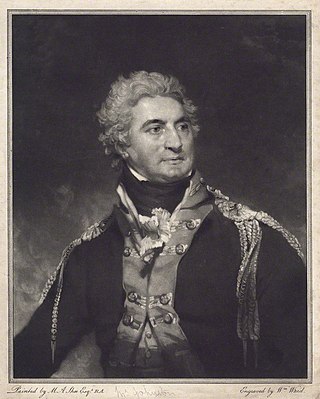
John Henry Johnstone (1749–1828), also known as 'Jack' Johnstone or 'Irish' Johnstone, was an Irish actor, comedian and singer.

Isabella Hill, better known as Mrs Howard Paul, was an English actress, operatic singer and actress-manager of the Victorian era, best remembered for creating the role of Lady Sangazure in the Gilbert and Sullivan comic opera The Sorcerer (1877).
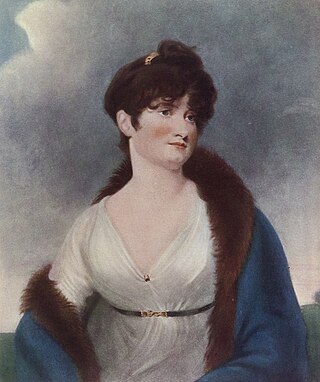
Rosemond Mountain or Rosemond Wilkinson was a British actress and soprano. She was said to be the "best female singer on the English stage" from 1800.

Henry Woodward was an English actor, among the most famous in his day for comedy roles.

Ralph Wewitzer (1748–1825) was an English actor. He won critical acclaim in supporting parts, but was never given leading roles. He had a 44-year acting career, and is thought to have learned over 400 speaking parts.
References
- Notes
- ↑ A Biographical Dictionary of Actors, Actresses, Musicians, Dancers, Managers & Other Stage Personnel in London, 1660-1800: Tibbett to M. West, Philip H. Highfill, Kalman A. Burnim, Edward A. Langhans, SIU Press, 1973, p51
- ↑ Meaning spoken plays, rather than opera, dance, concerts, or plays with music ( "Definition from the Everything 2 website". Everything2.com. 6 January 2002. Retrieved 20 March 2010.)
- ↑ Charles H. Parsons, Opera Composers and Their Works: E-K (1986), p. 886
- ↑ Parker, John, ed. (1925). Who's Who in the Theatre (fifth ed.). London: Sir Isaac Pitman and Sons. p. 1196. OCLC 10013159.
- Sources
- John Hamilton Warrack; Ewan West (1992-10-15). The Oxford Dictionary of Opera . Oxford University Press, USA. ISBN 978-0-19-869164-8.
- Temperley, Nicholas (2001). "Burletta". In Sadie, Stanley; Tyrrell, John (eds.). The New Grove Dictionary of Music and Musicians (2nd ed.). London: Macmillan. ISBN 978-1-56159-239-5.